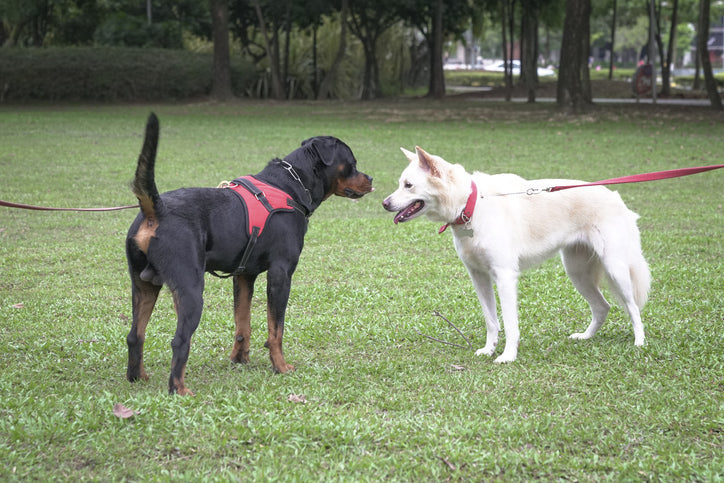
The Do's and Don'ts of Socializing Your Dog
Socialization is a crucial aspect of a dog's development that can impact their behavior and temperament. Proper socialization helps dogs develop positive associations with people, other dogs, and the environment, making them more confident and less fearful. As a dog owner, it's your responsibility to ensure your dog is well-socialized. In this article, we'll discuss the dos and don'ts of socializing your dog, according to professional trainers.
Do Start Early
Socialization should begin as early as possible. Puppies have a critical socialization period that starts at three weeks and ends at 14 weeks of age. During this time, they are most receptive to new experiences, and their brains are still developing. Expose your puppy to different people, dogs, and environments during this period to help them develop positive associations.
Do Go Slowly
Socialization is not a one-time event but a process that takes time. It's essential to go at your dog's pace and not rush them. Introduce new experiences gradually and positively reinforce good behavior. If your dog shows signs of fear or anxiety, back off and try again later.
Do Use Positive Reinforcement
Positive reinforcement is the most effective way to encourage good behavior. Reward your dog with treats, praise, and affection for positive interactions with people, dogs, and the environment. Avoid punishing your dog for fear or anxiety, as it can worsen their behavior and make socialization more challenging.
Do Expose Your Dog to Different People, Dogs, and Environments
Expose your dog to a variety of people, dogs, and environments to help them develop positive associations. Introduce them to people of different ages, genders, and races, and dogs of different sizes and breeds. Take them to different places, such as parks, cafes, and pet stores, to help them become comfortable in different environments.
Don't Force Your Dog to Interact
Forcing your dog to interact with people or dogs can be stressful and counterproductive. If your dog is not interested in interacting, respect their boundaries and give them space. Encourage positive interactions, but don't force them.
Don't Use Punishment or Physical Force
Using punishment or physical force can have negative consequences and damage the relationship between you and your dog. Avoid shouting, hitting, or jerking the leash, as it can create fear and anxiety in your dog.
Don't Overwhelm Your Dog
Overwhelming your dog with too many new experiences at once can be counterproductive. Introduce new experiences gradually and at your dog's pace. Keep interactions positive and rewarding, and avoid overstimulation.
Don't Neglect Your Dog's Needs
While socialization is essential, it's important not to neglect your dog's other needs. Make sure your dog gets enough exercise, rest, and mental stimulation. Don't force socialization if your dog is sick, tired, or not feeling well.
Conclusion
Socialization is a critical aspect of a dog's development that can impact their behavior and temperament. As a dog owner, it's your responsibility to ensure your dog is well-socialized. Start early, go slowly, use positive reinforcement, and expose your dog to different people, dogs, and environments. Avoid forcing interactions, punishment, physical force, overwhelming your dog, and neglecting your dog's needs. By following these dos and don'ts, you'll help your dog develop positive associations and become a well-adjusted and confident member of society.


